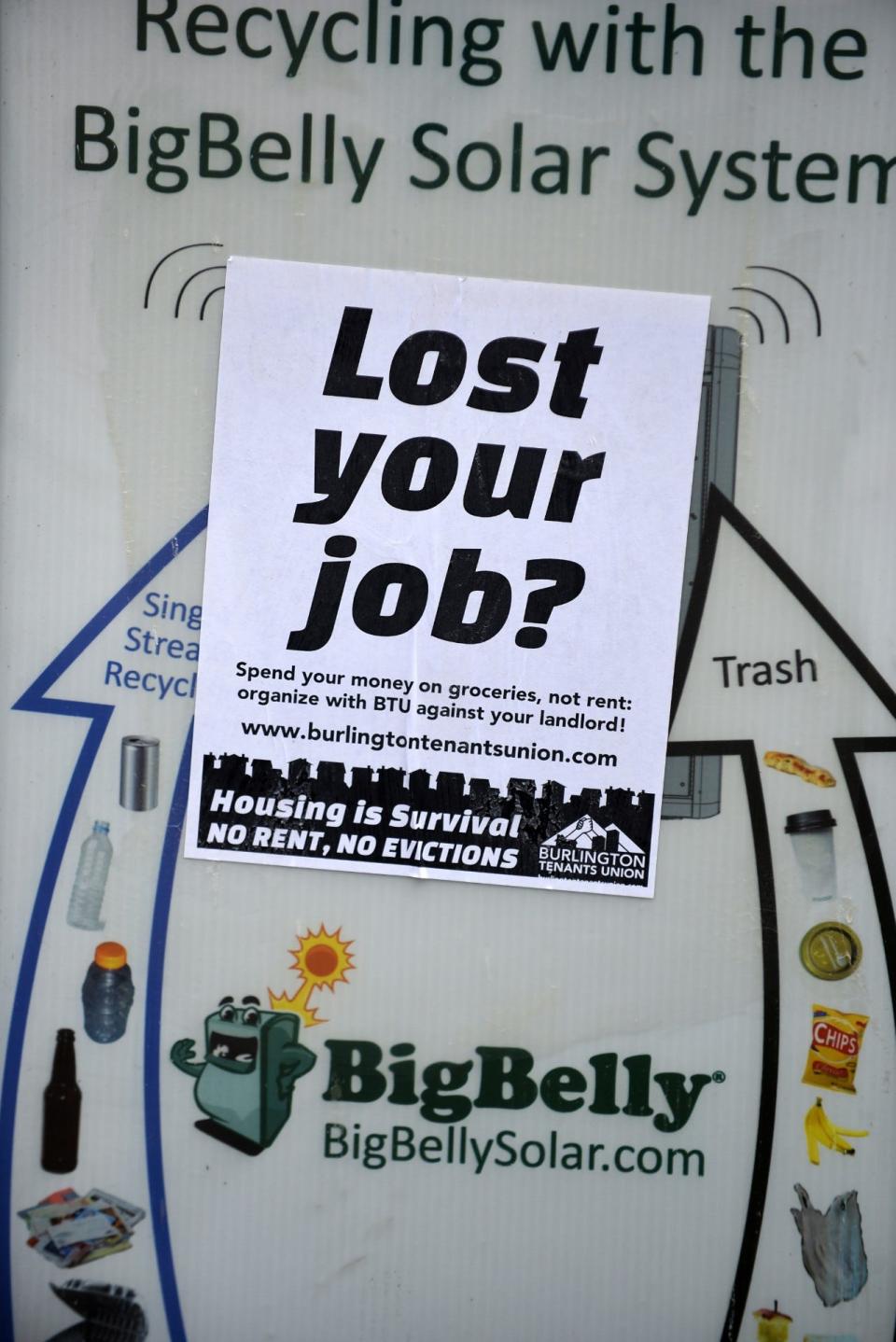Vermont companies cope with a tight labor market brought on by the pandemic
Peter Asch, president and CEO of Twincraft Skincare in Winooski, Vermont, says his contract soap manufacturing company has grown "quite substantially" in the two years since the COVID-19 pandemic began in March 2020, hiring more than 160 new employees.
Twincraft has a total of about 320 employees, according to Asch, meaning it has doubled its workforce during the pandemic. Asch said 97% of his employees are vaccinated.
"It's a challenging time to find people because there's less people available looking for jobs than there used to be," Asch said. "So far we've been pretty successful hiring a bunch of people who have also stayed with us."
It certainly is a challenging time to hire people, especially in Vermont.
Fast to lose jobs, slow to recover them
Vermont lost 63,500 "nonfarm" jobs because of the COVID-19 pandemic, according to a state financial report, and is slow to recover those jobs compared to other states.
The state has recovered 69.9% of those lost jobs, the report states, leaving approximately 19,100 jobs left to recover before the job count in Vermont returns to its pre-pandemic level.
More: Vermont struggles to recover jobs from 'brief but sharp' economic downturn
"The percentage of Vermont's nonfarm payroll jobs left to recover compares unfavorably to the U.S. average, which stood at 18.8% of the jobs left to recover relative to those lost during the pandemic-induced downturn," the report explains.

By comparison, Vermont still has about 30% of its jobs lost to the pandemic left to recover. The financial report blames the sluggish jobs recovery in Vermont on the state's reliance on travel and tourism.
"This sector has been disproportionately and negatively impacted by the pandemic," the report says.
Vermont JobLink, an online hiring site, has about 13,500 open positions right now, Vermont Labor Commissioner Michael Harrington said.
"The problem is we don't have 13,500 or more people looking for work in Vermont right now," he said. "We only have about 3,700 people collecting unemployment, and so we're going to have to look to other ways (to fill these jobs): people who have retired who want to come back to the workforce; expanding training opportunities; ensuring graduating students from high school or college stay in Vermont."
Flexible company culture makes the difference
How has Asch been able to hire the people he needs in a climate of low unemployment and high demand for workers? He said it's all about company culture.
"We've got a strong, positive, healthy culture and it's flexible," Asch said. "We've worked really hard to have an individualistic culture. We look at what people need as individuals and try to adjust to those needs instead of applying all of the rules uniformly."
A 60-year-old Twincraft employee might be interested in more time off to spend with grandchildren, Asch explained, while a 30-year-old employee might put a priority on higher pay to handle mortgage payments. Asch said it's a "cop-out" when management tells employees they have to be treated the same way as everyone else.
"We see that in businesses all the time," he said. "It causes stress and unhappiness in an organization. Why not address the issues on an individual basis? It doesn't mean you're not fair with salaries and 401(k)s, but you're individualistic with things that are heartfelt. That has made a big difference."
More: COVID-19 is creaming the beauty business. How are Vermont's companies holding up?
Asch admits it's more work to take an individualized approach to employees rather than applying rules equally to everybody, but believes it's worth the trouble. Twincraft is also open to hiring family members of current employees, unlike many businesses, as long as nepotism doesn't creep into the picture, giving unfair advantages to those family members.
"An employee who recommends a family member is going to make sure to the best degree possible they're successful in the company," Asch said. "That sounds good to me."
Waiting for the dust to settle
Labor Commissioner Harrington said the pandemic has been the impetus for many Vermonters to change jobs, leave the job market, or even to retire.
People with young children used the opportunity to stay home instead of working, he said, feeling it was a better use of their time and finances to take care of their children full-time. People who were at, or even past, retirement age felt the heath risks of needing to be at work were no longer worth it, and went ahead and retired.
"What we do have now is churn within the job sphere," Harrington said. "There's a lot of dust flying around and we need to see where the dust settles."
Contact Dan D’Ambrosio at 660-1841 or ddambrosio@freepressmedia.com. Follow him on Twitter @DanDambrosioVT. This coverage is only possible with support from our readers.
This article originally appeared on Burlington Free Press: Tight labor market: Vermont companies find ways to cope
